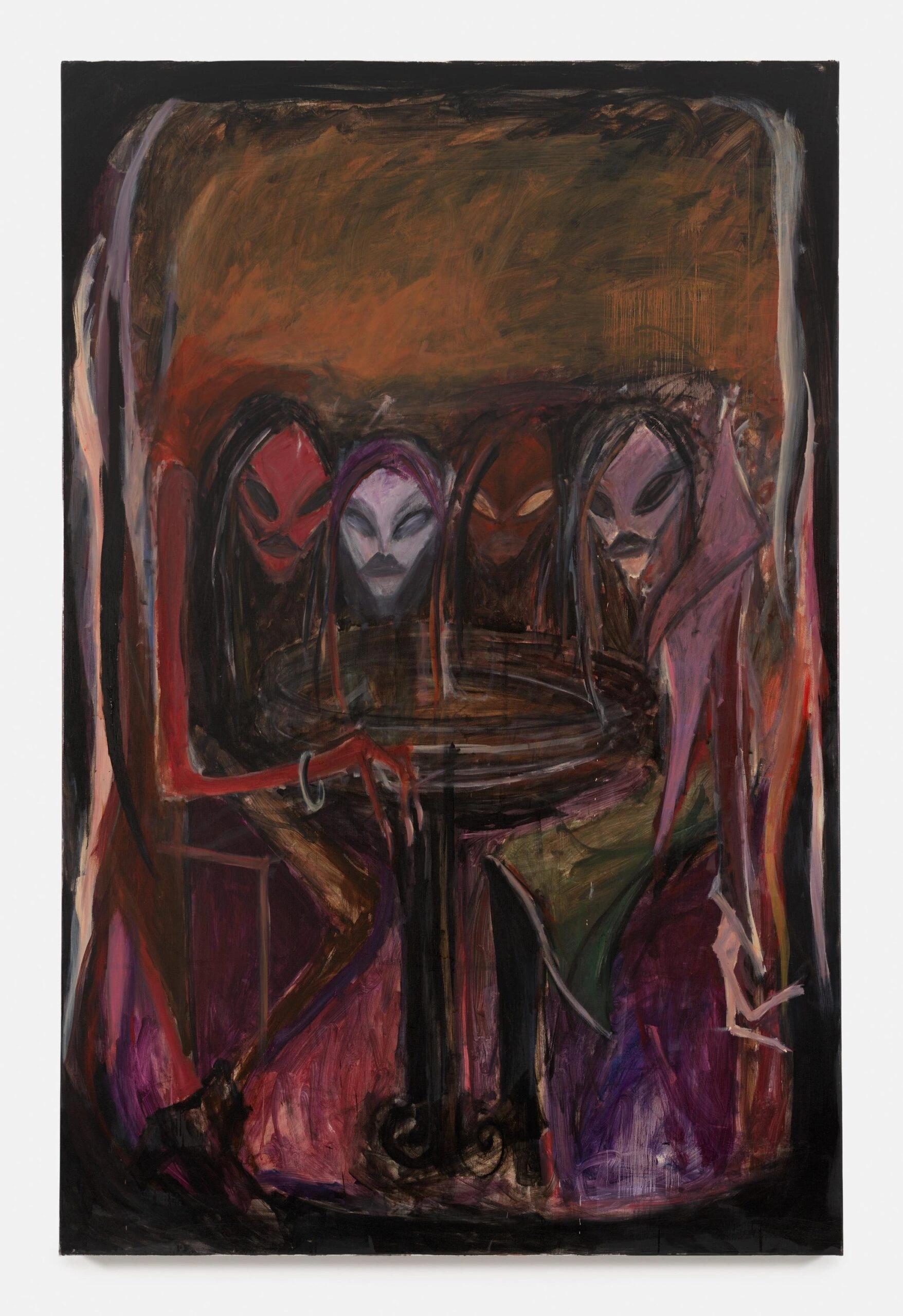In Taxi zur Kunst at Contemporary Fine Arts in Berlin, Tobias Spichtig transforms painting into a dreamlike ride through urban life and longing.
Departing from his earlier monochrome cool, the Swiss artist ventures into the realm of group portraiture, staging scenes of urban reverie with a palette steeped in nostalgia and irreverence. The show’s title, a pun on Berlin’s art world institution Texte zur Kunst, mirrors Spichtig’s method: half-joke, half-desire, a surreal cab ride through painting’s classical genres with the rear-view mirror trained on both history and the present moment.
At the heart of Taxi zur Kunst lies a negotiation between presence and absence. The figures—many drawn from Spichtig’s social milieu—are rendered in a quasi-mannerist manner, their forms edged in black and their exaggerated eyes evoking either mascara or voids. These eyes, blank yet potent, recall his earlier "sunglasses paintings" where the viewer’s reflection was anticipated but never delivered. Here, too, intimacy is offset by an unshakable sense of alienation; his characters exist not to invite but to exist, suspended somewhere between sleepwalk and spectacle.
Spichtig’s compositions oscillate between narrative and atmosphere. A dinner, a kiss, a dance—these are not stories so much as fragments of contemporary mythologies, urban rituals passed through a lens smeared with irony and yearning. The influence of Bernard Buffet and Kirchner is palpable, yet Spichtig avoids pastiche. His brush treads the same historical precipice, but with a post-internet lightness. It’s an existentialism dressed in party clothes, laced with melancholy and lit by neon.
For Spichtig, painting is not a window but a taxi: transient, expectant, vaguely haunted. His refusal to fully engage with political rhetoric becomes its own politics—one that longs for beauty with equal parts sincerity and knowingness. Taxi zur Kunst doesn’t offer destination, only movement. And that might be precisely what we need.














